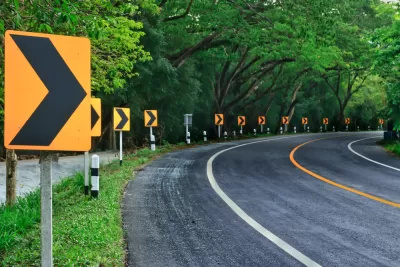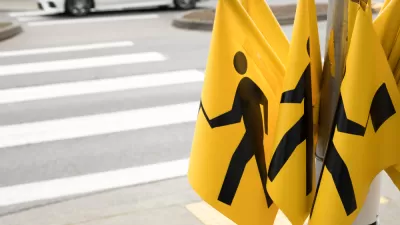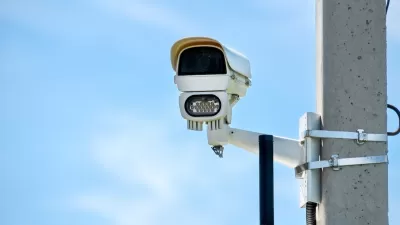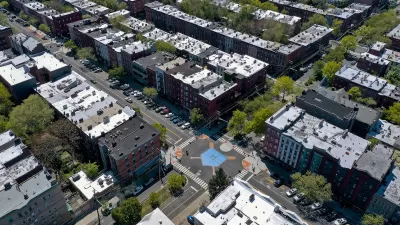Making the case for reduced speed limits is a matter of life and death.

"Yes – we’re all human and we make mistakes, but human error shouldn’t result in life or death situations," writes Alli Henry, the program manager for WalkArlington.
Henry is following on a specific component of the recent "Dangerous By Design" report, published by Smart Growth America. That is: cities can prevent fatalities by slowing the speed of traffic.
"It’s no coincidence progressive cities are reducing speed limits to 20-25 mph," writes Henry. "Research has determined that traveling above 30 mph puts our most vulnerable users at higher risk of serious injuries and death."
Henry mentions the examples of Boston and Seattle, both of which have lowered speed limits in broad swaths of their cities in recent months.
FULL STORY: Hey, Neighbor! Slow Down, Speed Matters

Americans May Be Stuck — But Why?
Americans are moving a lot less than they once did, and that is a problem. While Yoni Applebaum, in his highly-publicized article Stuck, gets the reasons badly wrong, it's still important to ask: why are we moving so much less than before?

Using Old Oil and Gas Wells for Green Energy Storage
Penn State researchers have found that repurposing abandoned oil and gas wells for geothermal-assisted compressed-air energy storage can boost efficiency, reduce environmental risks, and support clean energy and job transitions.

Placekeeping: Setting a New Precedent for City Planners
How a preservation-based approach to redevelopment and urban design can prevent displacement and honor legacy communities.

Colorado Lawmakers Move to Protect BRT Funding
In the face of potential federal funding cuts, CDOT leaders reasserted their commitment to planned bus rapid transit projects.

Safe Streets Funding in Jeopardy
The Trump administration is specifically targeting bike infrastructure and other road safety projects in its funding cuts.

Six Reasons Why Housing Is a Human Right
Is housing a human right? A law professor shares six reasons why it should be, from its role in protecting other rights to global recognition and U.S. legal traditions. As public support grows, could housing be the next right written into law?
Urban Design for Planners 1: Software Tools
This six-course series explores essential urban design concepts using open source software and equips planners with the tools they need to participate fully in the urban design process.
Planning for Universal Design
Learn the tools for implementing Universal Design in planning regulations.
Heyer Gruel & Associates PA
City of Moreno Valley
Institute for Housing and Urban Development Studies (IHS)
City of Grandview
Harvard GSD Executive Education
Salt Lake City
NYU Wagner Graduate School of Public Service
City of Cambridge, Maryland





























